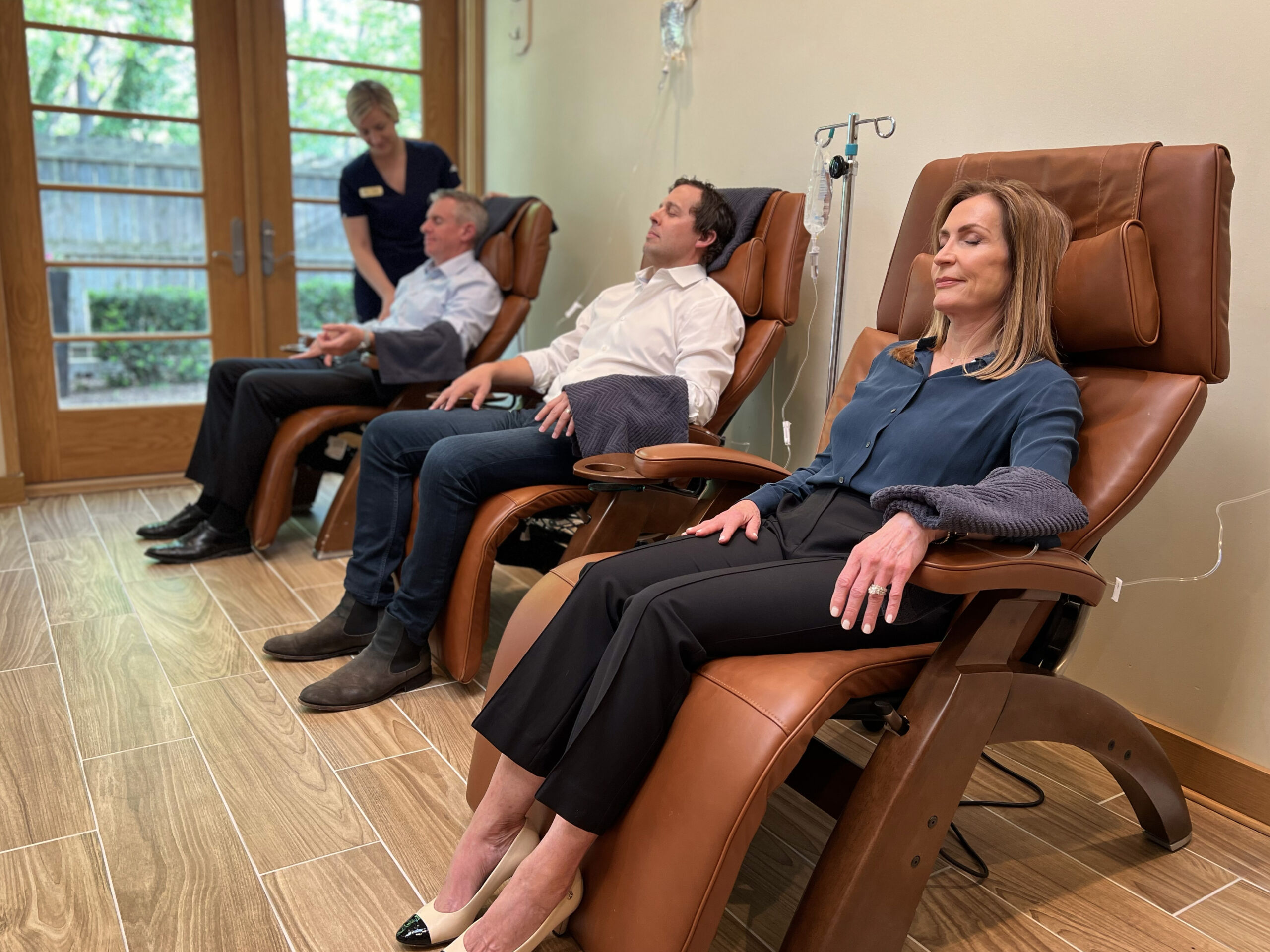Meet the “jack of all trades” of your body: the vagus nerve.
The vagus nerve is a bit of a hot topic in the health and wellness sphere right now — and for good reason. It affects or is directly involved in dozens of physiological processes that influence how you feel on a day-to-day basis — from digestion to breathing to the stress response.
So, what exactly is the vagus nerve and how does it function?
According to Dr. Sita Kedia, neurologist at PALM Health, “The vagus nerve is the longest of twelve cranial nerves that run from your brain to the rest of your body, connecting to almost every major organ.” It runs down both the right and left sides, and plays a role in a variety of voluntary and involuntary responses and mechanisms, including:
 Breathing
Breathing- Heart rate
- Stress response
- Digestion
- Cardiovascular activity
- Coughing, sneezing, and swallowing reflexes
- Immune system
- Mood
- Speech
- And more
“This nerve is a key player in the parasympathetic nervous system, which is in charge of the “rest and digest” function — the counterpart to the “fight or flight” response you probably know very well,” says Dr. Kedia. Between the right and left sides, the vagus nerve contains 75% of the parasympathetic system’s nerve fibers!
The Vagus Nerve and the Stress Response
When you experience stress, anxiety, fear, and other negative emotions, your body reacts physiologically. Whether it is work-related stress, a conflict, or something else, your body perceives it as a harmful event, attack, or threat to survival, activating what you may know as the fight or flight response. You might feel anxiety and muscle tension, get a headache or upset stomach, or start shallow breathing. On a cardiac level, your blood pressure increases, your heart rate quickens, and your blood vessels constrict.
This fight or flight response is a function of the sympathetic nervous system, which is designed to protect you from danger. But, this doesn’t always serve you well. While in more serious situations you may need this response to react appropriately, experiencing it on a day-to-day basis can be detrimental to your health and well-being. This is where a normal, occasional physiological response turns into chronic stress and anxiety.

So, what is the antidote? The hero lies within the parasympathetic nervous system: the vagus nerve!
As the opposing response to the sympathetic nervous system, the parasympathetic nervous system can calm you down by slowing your heart rate, decreasing your blood pressure, relaxing muscle tension, and more.
In order to calm yourself in times of high stress and anxiety, the key is to “turn on” your parasympathetic nervous system by stimulating your vagus nerve.
How to Stimulate the Vagus Nerve
There are many ways to do this, depending on what is convenient and available. Here are the methods Dr. Kedia recommends to stimulate the vagus nerve on your own throughout the day.
 1. Cold Therapies
1. Cold Therapies
Cold therapies like cryotherapy can be a powerful tool to stimulate the vagus nerve by slowing your heart rate and redirecting blood flow to your brain. At PALM Health, cryotherapy is a service available to many of our membership levels. If cryotherapy isn’t an option for you, you can try a cold plunge, a facial ice bath, a cold compress, or even just a cold shower.
2. Singing, Humming, and Gargling
Because the vagus nerve connects to the inner ear and vocal chords, inducing vibration of the vocal chords can in turn stimulate the nerve, calming you down. You can do this by singing, humming, or gargling.
3. Deep Breathing
Deep breathing exercises help to slow your heart rate and cue the vagus nerve that it’s time to engage and calm your body down. Our top-recommended type of breathing is Cardiac Coherence, a method that draws on the connections between your heart rate variability and the stress response.
 4. Vagus Nerve Stimulators
4. Vagus Nerve Stimulators
For a more direct approach, you can also try external vagus nerve stimulation devices. These are hand-held, portable devices that use electrical currents to stimulate the vagus nerve when applied directly along it. “These devices work well to bring along with you throughout the day and use in stressful situations,” says Dr. Kedia.
The takeaway? Your vagus nerve is a key player in your ability to lower stress and anxiety levels on a day-to-day basis. Try to incorporate some (or all!) of these techniques into your routine and see if it makes a difference in how you feel!
Vagus nerve stimulator devices are available for purchase in-store at PALM Health. If you wish, you can schedule a visit with a medical technician to try out the device before purchasing.
Like what you’re reading here? Learn more about membership.
PALM Health is an optimal health and longevity center that provides concierge medicine with functional medicine experts and convenient access to comprehensive wellness and recovery services. Our memberships give you access to a wide variety of wellness services, integrative therapies, and on-site healthcare.








